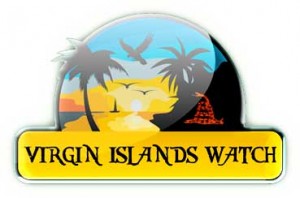So You Say You’re A True Virgin Islander
 I wanted to take some time to define the term “Virgin Islander.” With the intent of devising a meaningful definition around which the masses of Virgin Islanders can unite, I am writing this article. On one hand, many of us have gotten a kick out of the mass emails, “You know you’s a true St. Thomain when…” and “You know you from the Virgin Islands When…” And, yes they are funny. But, you must admit they focus on trivial things (i.e. if you have a Chevy Sprint with a big set, or if you wear hibiscus earings, or if you say things like “vex me dread”). I mean, really, is that what defines us? Is that it? Is that all it takes to be the true Virgin Islander?It is great to have fun, but does that definition do anything to empower us as a people?
I wanted to take some time to define the term “Virgin Islander.” With the intent of devising a meaningful definition around which the masses of Virgin Islanders can unite, I am writing this article. On one hand, many of us have gotten a kick out of the mass emails, “You know you’s a true St. Thomain when…” and “You know you from the Virgin Islands When…” And, yes they are funny. But, you must admit they focus on trivial things (i.e. if you have a Chevy Sprint with a big set, or if you wear hibiscus earings, or if you say things like “vex me dread”). I mean, really, is that what defines us? Is that it? Is that all it takes to be the true Virgin Islander?It is great to have fun, but does that definition do anything to empower us as a people?
On the other hand, we have the very real wranglings of those trying to define a political term: “Native Virgin Islander.” Citing the text of the 1927 Act Conferring U.S. Citizenship, many hope to justify their definition claiming that “[a]ccording to the document, an ancestral native Virgin Islander is a person born or living in the Virgin Islands before 1927…or a direct descendant of someone who meets that criteria.”Now, as I have said: I understand why these arguments are made. The debate over nativism has raged because of the (real) threat that those from outside of the Virgin Islands will move in and take over, leaving so-called natives vagrants in their own homeland. That is a very real concern. However, their definition is unfounded and misguided.
Here’s why.
I happen to own a copy of a hard to find book: United States Virgin Islands: Major Political Documents 1671-1991. In this book is a copy of every political document written concerning the Virgin Islands and Virgin Islanders by the Danish, the Americans and the people of the Virgin Islands. So, I read the act and share my thoughts.
The first major oversight is that, the Act does not refer to people born or living in the Virgin Islands before 1927. Section 1 of the Act – approved on February 25, 1927 – refers to persons and their children born after Transfer Day (Jan. 17, 1917). The reference to children did not carry on in perpetuity. That reference applied to those who were not of citizenship age. Additionally, in Section 2 all references to natives refer to those who could lay claim to the Virgin Islands prior to transfer day. There are no references to descendants of those people. The only reference to descendants comes in Section 3, included here in total:
All persons born in the Virgin Islands of the United States on or after January 17, 1917 (whether before, or after the effective date of this Act), and subject to the jurisdiction of the United States, are hereby declared to be citizens of the United States.
So, who is the True Virgin Islander? And, what makes a native?
Some who believe there needs to be a definition point to Hawaii as an example. There is reference to Native Hawaiians in their State Constitution. And, “Native Hawaiian” is a defined term. The key term in the definition of a “Native Hawaiian” is “indigenous.” Native Hawaiians can trace their ancestry back to as early as AD 400 – or long before Europeans came.
That is a real Hawaiian. So, who would be a Native Virgin Islander?
VI Now reminds us:
The first people known to have inhabited what is today the Virgin Islands were the Carib, Arawak and Ciboney Indians. These indigenous people are believed to have left and/or been forcibly removed by the late 1500’s.
So, essentially all “Native Virgin Islanders” are long dead (unless there are some who made a reservation on one of those little islelets). Any other claim to nativism would be tantamount to Whites or Blacks in the US claiming to be Native Americans! How many of you think that would work? Better yet, here’s the link to a Google Search of the term. Let me know if you find any White or Black people.
Who is the true Virgin Islander? And, what should be the benchmark of our definition. Again, I look to our colonial master for the example. How did the modern term “American” come to be defined?
“American” became popular with the founding of America – the United States. And while all share the benefit of being called America, such benefit was won by those who gave their blood, talent and/or treasure to establish the Government and Country of America.
So, I offer the definition of the True Virgin Islander: one who gives their blood, talent and/or treasure to establish the Government and country (little “c” purposeful) of the Virgin Islands. Where my true Virgin Islanders at? Are you a true Virgin Islander?
Answer the Call: Virgin Islands for the Virgin Islanders…those at home and those abroad!
 Calendar
Calendar 








